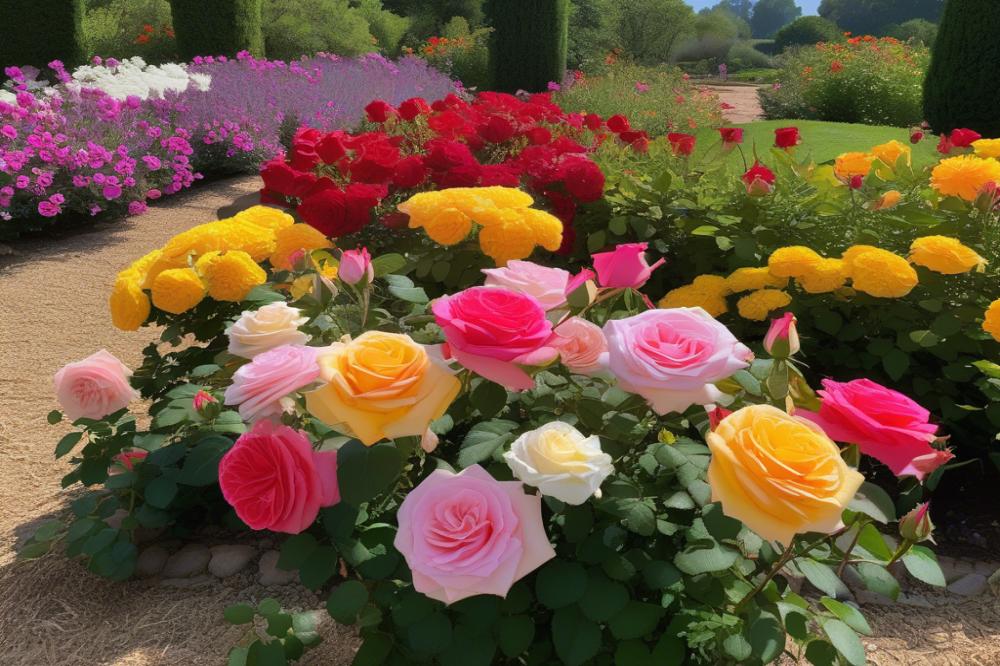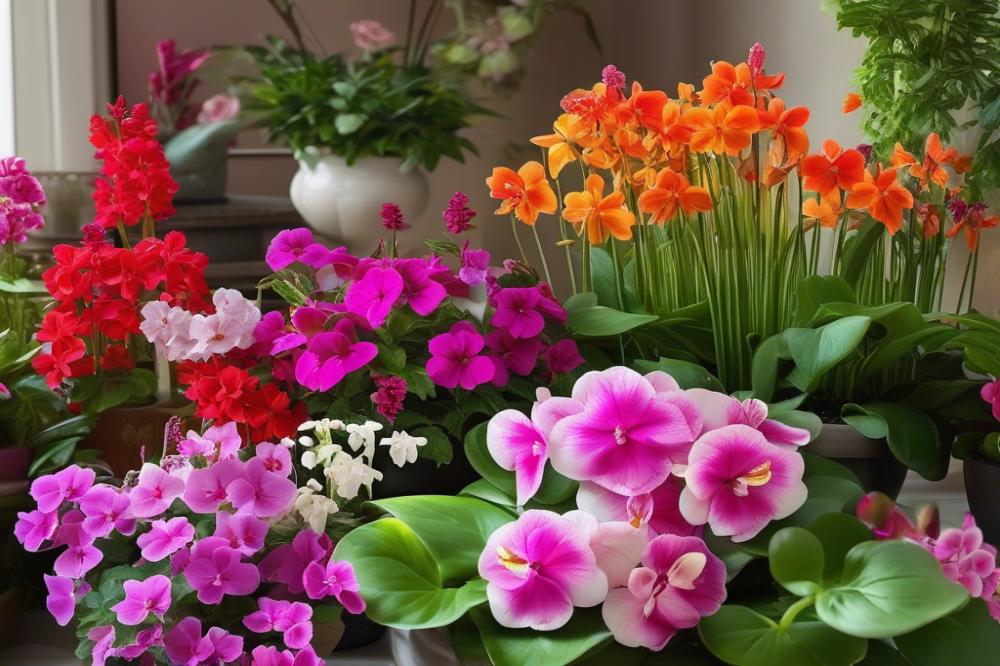Introduction
Cultivating roses without the use of chemical pesticides is more than just a gardening choice; it is a commitment to health and sustainability. organic rose gardening allows you to enjoy the beauty of these flowers while promoting a safe environment for people, pets, and beneficial insects. Roses are versatile and can thrive in many conditions, but the way we care for them matters a lot.
growing roses without harmful chemicals offers numerous benefits. First, it improves the safety of your garden. Pesticides can harm pollinators, such as bees, which are vital for maintaining biodiversity. When you choose natural pest control methods, you help protect these important creatures. Additionally, your plants benefit from healthier soil. Practices like using organic mulch contribute to soil health, helping retain moisture and nutrients.
There are various effective methods to manage pests and diseases organically. companion planting is one approach that works wonders. Selecting the right plants to grow alongside roses can deter harmful insects and attract beneficial ones. For example, marigolds are perfect companions that repel pests. Furthermore, methods such as homemade insecticides can target specific issues without damaging your ecosystem. Using neem oil can be particularly effective against common rose pests, helping to keep plants healthy.
Integrating plant diversity into your garden fosters a balanced environment. When you choose disease-resistant roses, you reduce the likelihood of needing chemical treatments. Incorporating practices like biological pest management helps control pests by supporting their natural predators. Encouraging beneficial insects will naturally keep your rose plants thriving.
Being mindful of these organic practices not only enhances your garden’s health but also leads to more resilient and beautiful roses. Embrace this journey of creating a garden that flourishes without harmful chemicals. A little care goes a long way in turning your rose garden into a paradise that is both stunning and sustainable.
Understanding rose care

Caring for roses involves several essential practices that contribute to their health and beauty. Regular watering is crucial, especially during dry spells. Roses thrive when given the right amount of moisture. Choose well-draining soil for your plants; standing water can lead to root rot.
Soil health plays a pivotal role in rose gardening. Healthy soil provides nutrients and supports robust root systems. Adding organic mulch helps preserve moisture and nurtures the soil. Mix in compost to enrich the earth, fostering beneficial microorganisms. These tiny helpers improve nutrient availability for your roses.
When selecting roses, consider the advantages of choosing disease-resistant varieties. These plants are more resilient against common threats such as black spot and powdery mildew. By opting for roses bred for durability, you can reduce the need for interventions. Plant diversity in your garden also supports healthier roses. Incorporating companion planting attracts beneficial insects that keep pests at bay.
Many gardeners appreciate using natural methods for pest control. Neem oil is an effective option for managing unwanted bugs. Homemade insecticides can also deter pests without harming plants. Apply these treatments as needed, focusing on affected areas. Effective biological pest management helps maintain a thriving rose garden.
Fostering a vibrant garden requires attention to detail and consistent care. Watching your roses thrive without chemicals is rewarding. This approach not only beautifies your space but also benefits the environment. Commit to understanding your plants, and they will flourish.
Companion Planting for Pest Control

Plant diversity plays a vital role in keeping your rose garden healthy. By using companion planting, you can create a more balanced ecosystem. This method helps repel pests and encourages beneficial insects. When different plants grow together, they can support each other in various ways, reducing the need for chemical pesticides.
Recommended Companion Plants for Roses
Certain plants work especially well alongside roses. Marigolds are a popular choice because they emit a smell that keeps many pests away. Nasturtiums can attract aphids, drawing them away from your rose bushes. Additionally, herbs like basil and thyme not only enrich the soil but may also deter unwanted insects. Understanding which plants complement roses can enhance your garden’s health.
How Companion Plants Deter Pests
Companion plants act as a natural barrier against harmful bugs. For instance, strong odors from herbs can mask the scent of roses, making it harder for pests to locate their favorite flowers. Some plants even attract beneficial insects, such as ladybugs and lacewings, which feed on harmful pests. By planting organic mulch around your roses, you can also create a habitat that encourages these helpful insects to thrive.
Homemade insecticides made from garlic or pepper can further aid in protecting your roses. These natural solutions are easy to prepare and pose no risk to the environment. Maintaining soil health is key for strong plants. Healthy roses are more likely to resist diseases, adding resilience to your garden.
Another advantage of plant diversity is that it promotes disease-resistant roses. When flowers are grown in diverse environments, they can develop better defenses against infections. Moreover, this method aligns perfectly with biological pest management practices, reducing reliance on harsh chemicals. Consider planting a variety of flowers and herbs alongside your roses for a healthier, thriving garden.
Biological Pest Management

growing roses without chemicals is a rewarding journey. Using beneficial insects plays a key role in this approach. These insects can help manage pests naturally, leading to healthier soil and plants. Embracing their presence can turn your garden into a vibrant ecosystem.
Introduction to Beneficial Insects
Beneficial insects are nature’s pest control agents. They feed on harmful bugs that threaten your roses. For example, ladybugs consume aphids, which are a common nuisance. Lacewing larvae can also take care of various pests. When you invite these allies into your garden, you foster a balanced environment.
Encouraging Predators Like Ladybugs and Lacewings
Creating an environment that attracts ladybugs and lacewings is essential. These predators thrive in gardens rich with biodiversity. Planting flowers that bloom at different times will draw them in. Consider companion planting; intermingling flowers with your roses can help attract these useful insects. Additionally, avoid using harmful pesticides that repel them. Instead, think about neem oil or homemade insecticides to manage any pest outbreaks.
Creating a Habitat for Beneficial Insects
Designing a welcoming habitat is crucial for sustaining beneficial insects. Organic mulch can enhance soil health while providing shelter. Diversity in plant selections not only beautifies your space but also supports a range of beneficial species. Small water sources can help too; insects often need moisture to thrive. Keep in mind, a little clutter like stones or logs can be a sanctuary for natural predators.
Organic Treatments and Remedies

Use of Neem Oil as a Natural Pesticide
Using neem oil can be an effective way to control pests in your garden. Derived from the seeds of the neem tree, this oil acts as a natural pesticide. It disrupts the life cycle of insects, preventing them from growing and reproducing. Spraying diluted neem oil directly on your roses helps protect them from common pests like aphids and spider mites. Many gardeners appreciate its ability to target harmful creatures while being safe for beneficial insects. When you apply neem oil regularly, it supports the overall health of your soil, which is vital for robust rose care.
Making and Using Homemade Insecticides
Homemade insecticides can be both easy to create and effective against pests. A simple recipe involves mixing soap and water. Adding a few drops of liquid soap to water forms a mixture that can suffocate soft-bodied insects. This method works well on aphids and whiteflies. Another option is to create a garlic spray. Blending garlic with water and letting it steep overnight makes a strong deterrent for many pests. Spraying this mixture on your plants can provide a unique layer of protection, promoting plant diversity in your garden.
Effectiveness of Organic Mulch in Pest Prevention
Organic mulch is another powerful ally in pest management. It offers multiple benefits for your roses. First, it fights weeds, making sure your plants don’t compete for nutrients. This helps maintain proper soil health. Second, mulch retains moisture, which is crucial during dry periods. Healthy soil means stronger plants that can resist diseases better. You will also find that certain mulches, like shredded bark or straw, can deter pests from laying eggs. With a layer of mulch, you’re not just protecting your roses; you’re enhancing the ecosystem. Incorporating these practices can lead to a flourishing garden without relying on chemical solutions.
Maintaining Plant Health and Resilience
Regular monitoring and maintenance are crucial for the success of your rose garden. Take time to inspect your plants frequently. Look for any signs of pests or diseases. Early detection can save you a lot of trouble later. Stay alert for changes in leaf color or texture, as these can often signal problems. An attentive eye will help you maintain healthy plants.
Enhancing soil health plays a vital role in growing roses organically. Incorporate organic mulch around your plants to improve moisture retention and suppress weeds. Mulch also adds nutrients back into the soil as it breaks down. Consider adding compost to enrich the soil with essential microbes. Plant diversity is another effective strategy. Mixing different species can promote soil health and deter pests naturally through companion planting.
Watering your roses correctly is essential for their growth. Early morning is the best time to water. This allows the plants to absorb moisture before the heat of the day. A drip irrigation system can deliver water directly to the roots, minimizing waste. When it comes to pruning, do it carefully. Remove dead or diseased wood to encourage new growth. Healthy pruning strengthens your roses and opens them up to better air circulation.
Organic fertilizing is equally important. Use homemade insecticides, like a mixture of neem oil and water, to safeguard your flowers. Such remedies target pests while remaining safe for beneficial insects that keep your garden thriving. Choose disease-resistant roses if possible, as they are less likely to succumb to problems. Balancing natural elements will support biological pest management and maintain a stable ecosystem in your garden.
Final Thoughts on organic rose gardening
Successfully growing roses without chemical pesticides requires dedication and knowledge. Key methods include maintaining healthy soil, utilizing natural pest control techniques, and practicing companion planting. Healthy soil provides a strong foundation for growth. Incorporating beneficial insects, like ladybugs, can help keep harmful pests at bay.
These practices not only benefit your roses but also the environment. By adopting chemical-free habits, you contribute to a healthier ecosystem. Using natural methods means reducing chemical runoff, which can harm local wildlife. Embracing organic rose care is an effective way to nurture nature.
Enjoy the journey of cultivating beautiful blooms with confidence and satisfaction. Growing roses naturally can be immensely rewarding. Not only do you create a stunning garden, but you also do so in a way that respects Mother Earth. With time and patience, your rose garden can flourish while remaining free from harmful pesticides.
In conclusion, your garden can become a sanctuary filled with color and fragrance. By implementing the techniques shared, you take a step towards healthier gardening. Remember, every effort counts, and the joy derived from nurturing plants organically is unparalleled. Let the beauty of roses inspire you and guide you to thrive in gardening without chemicals.



